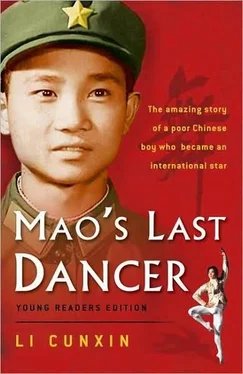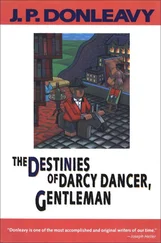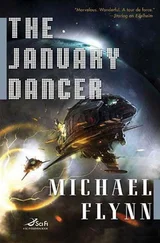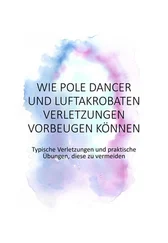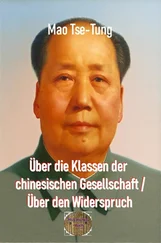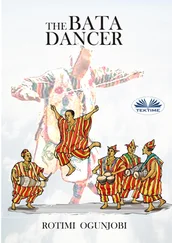"Mary is such a nice girl," my niang went on. "I hope you will treasure her, respect her, for ever. Never take her love for granted. I hope you will love Mary like your dia loved me. We love her! I have no doubt you will make a happy family together."
That afternoon, after my conversation with my niang, Mary suddenly became ill. We suspected food poisoning, so my brothers and I took her to Laoshan Hospital and a doctor prescribed her a drip. There was no room in the hospital for Mary to stay, so the doctor allowed us to take the two bags of drip, the tubes and the needles home with us. My third sister-in-law called a friend who was a nurse in her factory and they helped set the treatment up in our house, hanging the bag from a windowsill while Mary lay on the earth kang, pale-faced, watching the fluid dripping into her blood. I looked at her beautiful, peaceful, sun-darkened face and remembered my dia's words at the wedding, and my niang's that morning.
The treatment soon worked and Mary quickly recovered and was well enough to make the trip back to Beijing. "Mary has become a commune girl," my niang said during our last dinner together. At first my parents had been worried that Mary might not get used to the harsh commune life and wouldn't enjoy her experiences in China. But Mary loved the whole thing, except perhaps the food poisoning and the hole-in-the-ground toilet. She fought to wash the dishes with my sisters-in-law. She became the favourite sixth niang of my nephew and nieces. She even remembered what to call the many uncles, aunties, great-grandnephews and other relatives.
We had only been able to buy one-way tickets to Qingdao. We were told in Beijing that they didn't sell domestic return tickets. So my brothers had to use some personal connections to get us the return tickets back to Beijing. And, just a couple of days before we were to leave, the local police gave us our passports back. We were to take my youngest brother and his bride to the capital with us, for a honeymoon, and they would stay and explore Beijing after we left.
When the final moment came for Mary and I to bid farewell to my niang, my dia, and my brothers, my heart was a twisted knot. It felt just like the first time I'd left for the Beijing Dance Academy sixteen years earlier. Leaving my beloved niang would always be hard. I watched the tears flood down her face. Even the family rock, my dia, tried hard to control his emotions when we finally shook hands in farewell. As our truck pulled away, I saw he too was wiping tears from his face.
It was time to leave China, time to bid another farewell, this time to my little brother Jing Tring, his bride, the Bandit, Teacher Xiao, Fengtian, Chong Xiongjun, and all their wives at Beijing Airport. By now Mary and I were totally incapable of holding back our tears. We were constantly touched by my friends' kindness. All of them would have given us their hearts and more, and by the time we found ourselves sitting on the plane we were both emotionally drained.
I was going home. But I was leaving home too. I was closing a full circle within my heart. I thought of my beloved ones. Now they didn't have to eat any more dried yams. Now they had better food to eat. Now their living standard had improved considerably.
But Mary and I couldn't stop comparing our life in the West to theirs in Qingdao and at times I was again overwhelmed with guilt. Ever since I had been selected for the Beijing Dance Academy, I had felt this guilt, this burden, this sense of responsibility for my family. I wished all of my brothers could have had the opportunities I'd had, but deep in my sad heart I knew it was not to be. I was the one who had to fulfil my niang's, my dia's and my six brothers' dreams. Mary and I had given each of them as much money as we could afford, but I knew that it didn't matter how much I gave them, it would only ever provide them with temporary help. What they needed most was the one thing I couldn't give them-opportunity. Maybe, just maybe, now for the first time in their lives, there was a glimpse of hope under Deng Xiaoping's leadership. I had gone back home and had expected to leave them feeling light and optimistic. Instead I was leaving with a confused heart.
I sat on the plane and watched the thick clouds pass beneath. I had no desire to sleep. I could think only of my family, my family and friends who lived so simply yet made their happiness in their own ways.
Mary was sleeping now. I looked at her kind and peaceful face. I felt truly blessed to have found her, to have her by my side.
I had no idea what would happen next in our lives, but my guilt at leaving my family in China began to be replaced with excitement. The road I had travelled so far had had so many detours. Nothing had been smooth or easy. I knew the road ahead wouldn't be smooth or easy either, but what I could see was possibility. The possibilities of the world were so vast. And no matter what lay ahead or behind, I always had my niang, my dia, my brothers and friends, and Mary as my life-long companion.
I looked out of the aircraft window into the darkening sky. I saw myself as a small boy, running barefoot through the commune fields. I saw myself as a Red Guard, and I saw myself once again as Mao's last dancer endlessly practising in a dim and dusty dance studio in Beijing. I thought of my journey towards the most precious thing I had, my freedom, and of what had always propelled me forwards-my dia's pride and dignity, and my niang's extraordinary courage and unlimited love.
Postscript. Melbourne, 2003
Mary and I visited my family in China many times after that first visit in 1988. The speed of economic reform there and the improvements in people's living standards greatly impressed me each time.
Over the years, both Mary's dance career and mine continued to flourish. We were invited by companies internationally to guest perform and both of us felt we were at the height of our dance careers.
Our first child, Sophie, was born in 1989. She brought such happiness and laughter into our lives. My parents came back to Houston to help us look after Sophie so Mary could go back to dance again. They adored Sophie, especially my niang. Sophie was the daughter she had always longed for. They talked to her in Chinese endlessly: they knew she would be an important link with her relatives in China when she grew up. So Sophie had four adults showering endless love and care onto her, and for us life seemed perfect.
But then something happened which changed everything. Sophie was just eighteen months old and we had brought her and my parents to Australia while Mary and I were guest performing with the Australian Ballet. One day, a birthday balloon Sophie was playing with suddenly popped. The noise was so loud that it took all of us by surprise. All of us except Sophie. We became suspicious and had her hearing tested as soon as we returned home to Houston.
Sophie was diagnosed as profoundly deaf. We were in total shock. We couldn't believe our beloved daughter would never hear music, would never hear all the sounds we took for granted.
We did everything in our power to find the cause and a cure. From Western medicine to Eastern treatment, nothing helped.
Just ten days after Sophie's diagnosis, Mary decided to give up her dance career and devote all her time to teaching Sophie to speak. We were devastated just thinking of what Sophie would miss in life and the enormous task ahead of us. I knew Mary's sacrifice would end her dance career. To lose Mary in dance was like losing my shadow. It took me a long time to recover.
But for Mary, her journey with Sophie was just beginning. She poured every ounce of energy she had into Sophie. Each discovery of a new sound, each word uttered by Sophie, was an enormous milestone. But her progress was extremely slow.
Читать дальше
